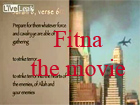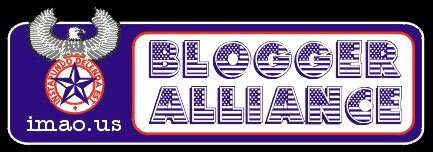« Iraqi Shi'ite Militia Wants To Fight Israel In Lebanon - Just Another Day In The War With Iran And Radical Islam | Main | Iran caught red handed in smuggling nuclear material »
July 24, 2006
A History of Violence: How the Mass Media Has Distorted the Israel-Lebanon Conflict
The most recent military engagement conducted by Israel has occurred as a reaction to Hezbollah's "Operation Truthful Promise," an oath to reclaim Lebanese prisoners by capturing Israeli soldiers and forcing an exchange. How poetically scrupulous in intent. In the process of accomplishing this valiant mission, eight Israeli soldiers were killed and two were kidnapped. Enter the current state of affairs.
 Josh Gellers provides us with a must-read history and perspective behind the current violence in the ME, and it's one that you're surely not going to get from the mass media or the Huffington Post, and it will make you acutely aware of the "horribly one-sided job that the mass media is doing of depicting the situation and its circumstances."
Josh Gellers provides us with a must-read history and perspective behind the current violence in the ME, and it's one that you're surely not going to get from the mass media or the Huffington Post, and it will make you acutely aware of the "horribly one-sided job that the mass media is doing of depicting the situation and its circumstances."
[... ] ... before jumping into the attentive computer-savvy public's wildly distorted view of the current crisis, it is essential to provide some background information. This month's volatile exchange between Israel and Lebanon has historic roots dating back to the 1948 Arab-Israeli conflict, when Palestinian refugees sought to relocate in southern Lebanon. In 1968, Israel was invaded by Palestinians from Lebanon who also launched rockets into Israeli territories. In 1975, a civil war erupted in Lebanon as a result of the struggle to achieve religiously proportionate representation in the government when four Christians leaving a church in Beirut were killed. Shortly after, twenty-seven Palestinians were killed in response. The two main factions in this dispute were Muslims, who hoped to have a larger say in government, and Christians, who controlled the Lebanese government. When it came time to choose sides (as is customary in Middle East conflicts) the Palestinian Liberation Organization supported its fellow Muslims and Israel supported the Christians, specifically the Maronites.Make yourself an expert on the real facts, continue reading...Eventually the Muslims became disenfranchised with the PLO, however, and the radical Islamist group led by Yassir Arafat seized control of southern Lebanon. The PLO conducted its own attack on Israel with reckless abandon until Israeli forces invaded Lebanon in 1978 after Fatah militants killed thirty-seven Israelis. The United Nations Security Council demanded Israel's retreat from Lebanon. Israel withdrew from Lebanon later in 1978 but maintained a limited presence by establishing a security zone in the southern part of the country protected by the South Lebanon Army, supported militarily by Israel. A cease-fire was enacted in 1981 but it was largely ineffectual due to the fact that the PLO could still attack Israel from Jordan and the West Bank leaving Israel with no way to respond without violating the agreement. Reaching the boiling point again, Israel finally decided to invade Lebanon. Another UN Security Council resolution on June 6, 1982 called for Israel's swift withdrawal but the United States used its veto on the measure. On June 26, 1982 the UN Security Council attempted to put through yet another resolution demanding Israel's withdrawal and it was met by another United States veto. The year 1982 also saw the creation of a Lebanese Islamic militia group called Hezbollah, based on the radical fundamentals of Iranian dictator Ayatollah Khomeini.
Progress was made in 1989 when the Taif Agreement was reached, ending the Lebanese civil war and creating more religious equality in the government. This landmark achievement was greeted by the assassination of Lebanon's newly elected president in a car bombing and Lebanese military leader Michel Aoun's dissolution of Parliament. Hezbollah continued to grow following the Taif Agreement, which called for the "disbanding of all Lebanese and non-Lebanese militias." To the chagrin of Israel and much of the world, the Lebanese government refused to comply with this aspect of the Taif Agreement, citing the group's legitimacy as a resistance to Israel's continued occupation. This is a major point of contention in this conflict.
In case anyone is in unaware of Hezbollah's intentions, statements made by the group's leader, Sheikh Hassan Nasrallah, should assuage any doubt. In a 1999 rally, Nasrallah told his audience of cheering supporters that "There is no solution to the conflict in this region except with the disappearance of Israel" and "I promise Israel that it will see more suicide attacks, for we will write our history with blood." During the rally, the air filled with chants such as "Death to Israel, death to America" and "Jerusalem is ours" while members of the crowd trampled flags of Israel and the United States. Not much ambiguity there.
Related: The Lebanon War
Posted by Richard at July 24, 2006 7:51 PM


